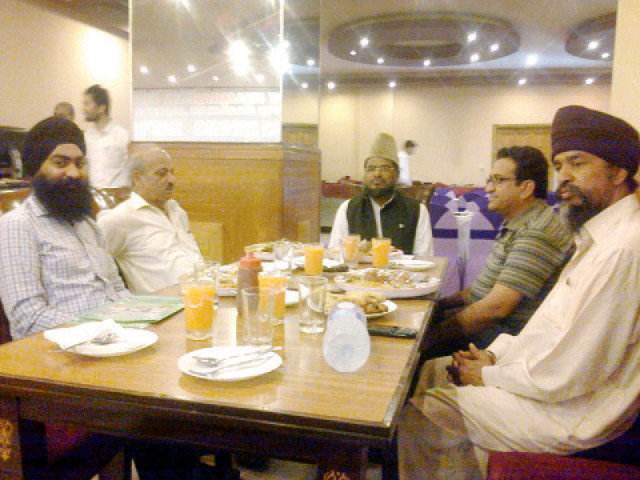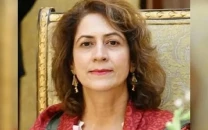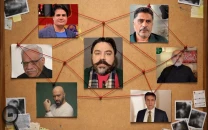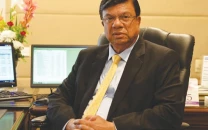Of interfaith harmony: Believing in unity of religions, Hindu doctor practices fasting
Dr Lekhraj Lalwani has been fasting in the month of Ramazan since he was six years old.

It was out of curiosity that Dr Lekhraj Lalwani observed a fast for the first time in Ramazan. Over the years, it has been become a matter of spirituality that has made him continue the routine. “I am even fasting right now,” he told The Express Tribune over the phone on Friday.
The doctor, a follower of the Hindu faith, claims he was six years old when he observed his first roza.
“Some of my fellow-students were fasting and I wanted to know why they were doing so,” he reminisces. “So I decided not to eat or drink anything just like them,” says the 40-year-old, recalling the childhood days he spent in a government school in Malir Khokhrapar.
The family was shocked to hear about his fast. His father was very angry. “He would try to stop me and would take away my cycle to make me break the fast. I was young and I told him I just wanted to see what it was about.”
As he grew older, fasting in the month of Ramazan became more of a habit. Lalwani came to believe that God was the same for everyone, no matter what religion they followed. “God is everywhere for everyone. All the religions preach the same thing: to do good and stay away from evil.”
With several Muslim friends who celebrate the Hindu festivals of Diwali and Holi with him and his family, Lalwani’s house is home to statues of Hindu deities as well as Islamic literature.
While his family has gradually come to accept his unusual practice of fasting in the holy month of Ramazan, he faced stiff resistance in the beginning. “My parents were afraid that I would convert and would stop practicing my faith. With time, they realised nothing of that sort was going to happen and they never forced me to discontinue the practice.”
Lalwani, who also heads a small organisation called the Pakistan Peace Coalition for Interfaith Harmony, also tries to pray in the Muslim way.
He has memorised some of the Quranic verses used in Namaz and reads out Surah Al Fatiha, but says he won’t pray until and unless he has memorised them properly as meanings can change. “While I am fasting, I often recite Shah Abdul Latif Bhittai’s poetry. It keeps me away from bad things and I don’t lie,” he says.
As a father of five children, Lalwani is making sure his kids study about different religions, saying that his daughter has also observed two fasts this Ramzan.
“I am very fond of eating but as soon as Ramazan starts, I just stop eating,” he said, adding that he likes to break his fast by dates and fruits. Lalwani plans to fast throughout the month of Ramazan and will celebrate Eid with as much fervor as his Muslim neighbours.
Published in The Express Tribune, July 13th, 2014.



















COMMENTS
Comments are moderated and generally will be posted if they are on-topic and not abusive.
For more information, please see our Comments FAQ